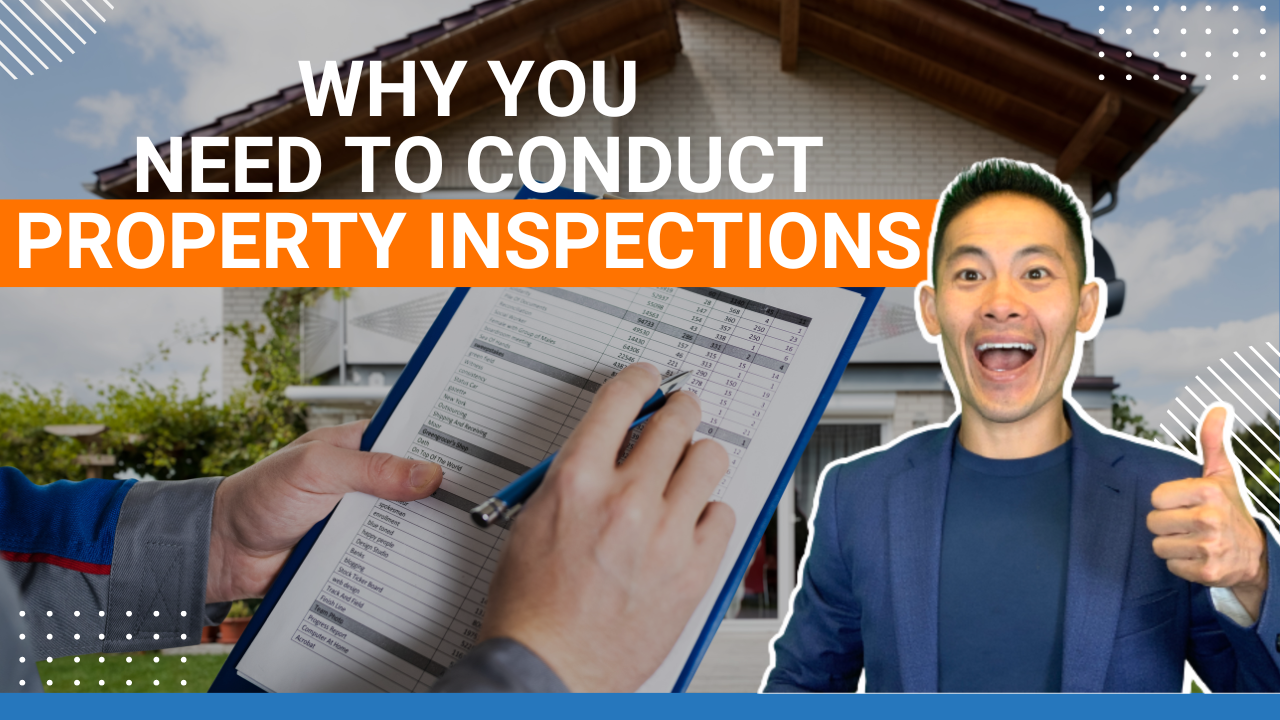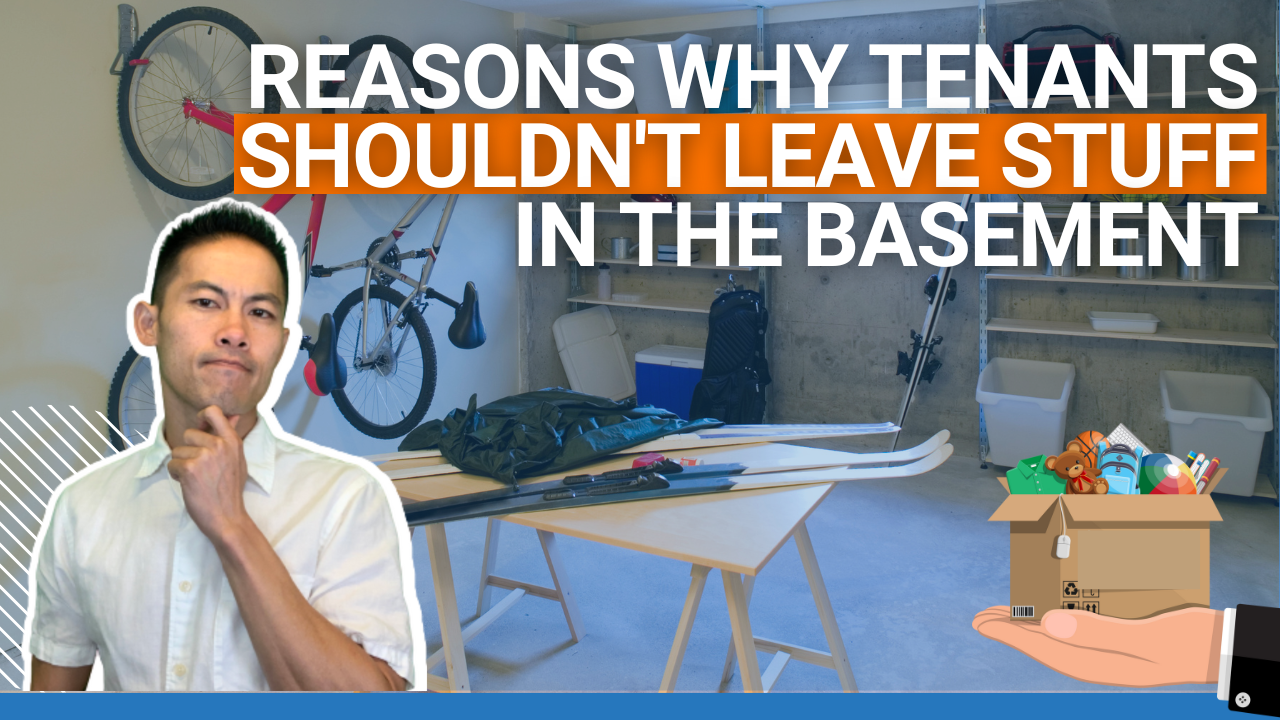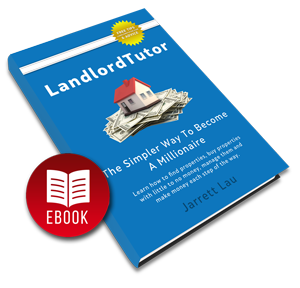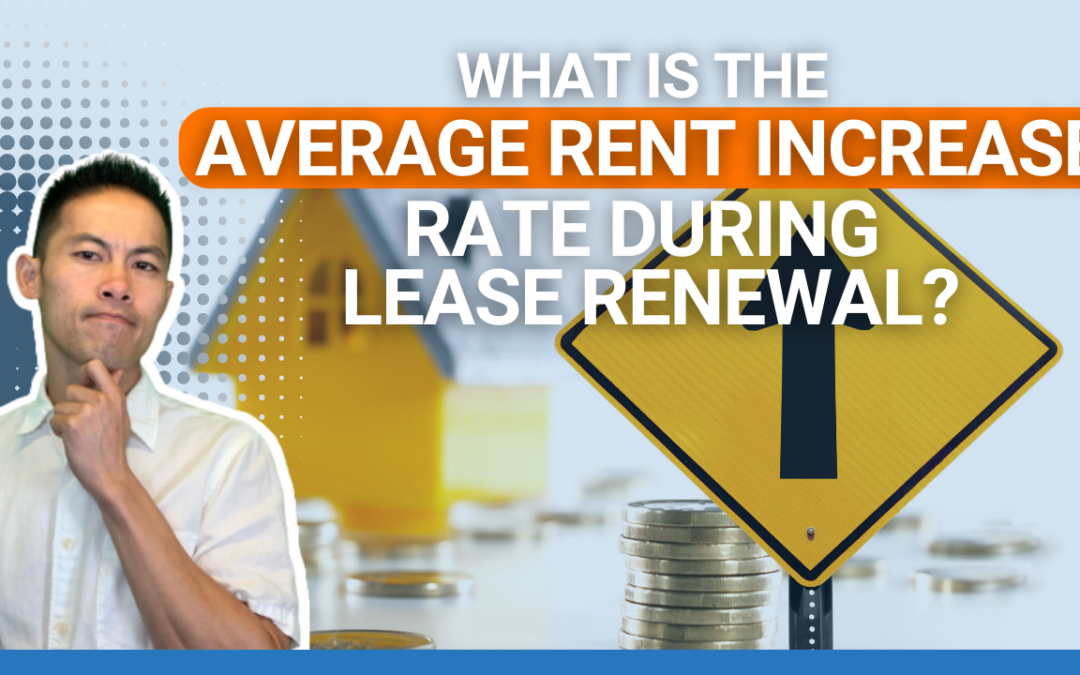
by J. Lau | Aug 25, 2022 | Being A Landlord, Financial
Most landlords find it difficult to increase the rent during lease renewal and by how much.
Here’s a look at my proactive approach, tenant retention rate, and market research to help keep your tenants and grow your rental income.
Increasing Rent During Lease Renewal

In all my years as a property owner and manager, I have done countless lease renewals. During that time, too, I have had to increase rents.
But I am not just going to give you any random amount to add to your rent. The rate increase isn’t the same for all landlords anyway.
In my property management company, for example, we offer every one of our landlords the opportunity to record their expenses for the past couple of years into our system.
Our system allows them to create a budget based on those numbers. By seeing their cash flow, they review how they are doing with their budget versus actual expenses and income.
The Influence of Inflation on Your Rent Increase
The most important benefit of having financial records in our system is seeing how your expenses went up. This can include the costs of utilities such as water, taxes, and insurance.
For example, your expenses can increase by 3% due to inflation.
Inflation is how much value your dollar gives you from year to year. The 3% increase in the example is the average annual inflation rate.
If the inflation increases by 3% and your expenses increase by 3%, you lose 6% of your money if you don’t increase your rent.
How a Property Manager Helps You Increase Rent

Aside from being a property owner, I also manage properties. let me share with you how a property manager helps you increase your rent.
A property manager guides you through the lease renewal and rent increase process.
For one, we present your financial records to you and help you figure out how much to increase to cover your actual expenses, including the inflation rate.
Furthermore, the property manager explains the rent increase to your tenants. Most landlords dread doing this during lease renewal; worse is they do not do it at all. But having a property manager saves you the hassle of dealing with your tenants about the rent increase.
A property manager also ensures that you make more money. We do that by saving money on expenses or, most importantly, increasing rent.
The Landlord Tutor Promise
To know more about lease renewals and how to increase your rents, join the Landlord Tutor community and sign up here.

by J. Lau | Aug 11, 2022 | Insurance/Protecting your asset, Property Maintenance
The math behind hot water tanks and their warranties is not something to overlook. Here is a brief explainer about some water heater facts and why you should check on your warranty today.
Common Water Tank Warranty
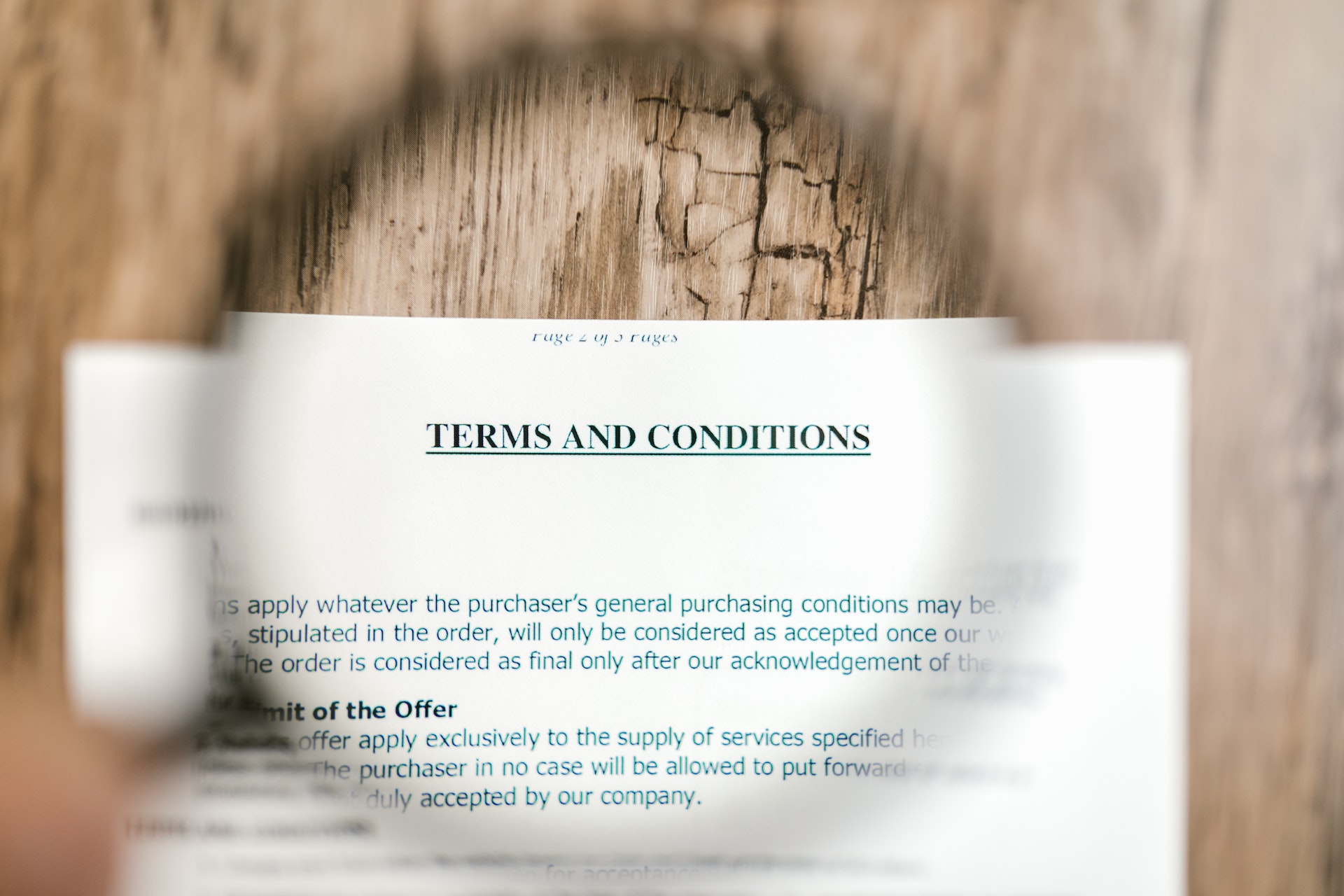
Water tanks usually come with 6, 10, or 12-year warranties, with the price increment at $100 to $250 at most.
Many of our landlords want an additional four years from a hot water tank, but here’s the truth about it. Even at years 6 to 9, it’s not like you get a brand-new hot water tank.
Sellers see how much time is left on your warranty and will give you a pro-rated amount. Let’s use a $1000 example for a hot water tank. If that hot water tank has a 10-year warranty and you are already in your 9th year, the warranty will only give you $100.
You are not getting an entire brand-new tank for anything at year nine; you must pay another $900.
Most landlords think their water tank is covered or that it is under warranty. Worse, they think they don’t have to pay for it!
The warranty does not pay for labor. The plumber still has to return the tank and get a new one. Not all plumbing companies will go to Home Depot to return and get you a new water tank.
What Makes a Better Water Tank Warranty?
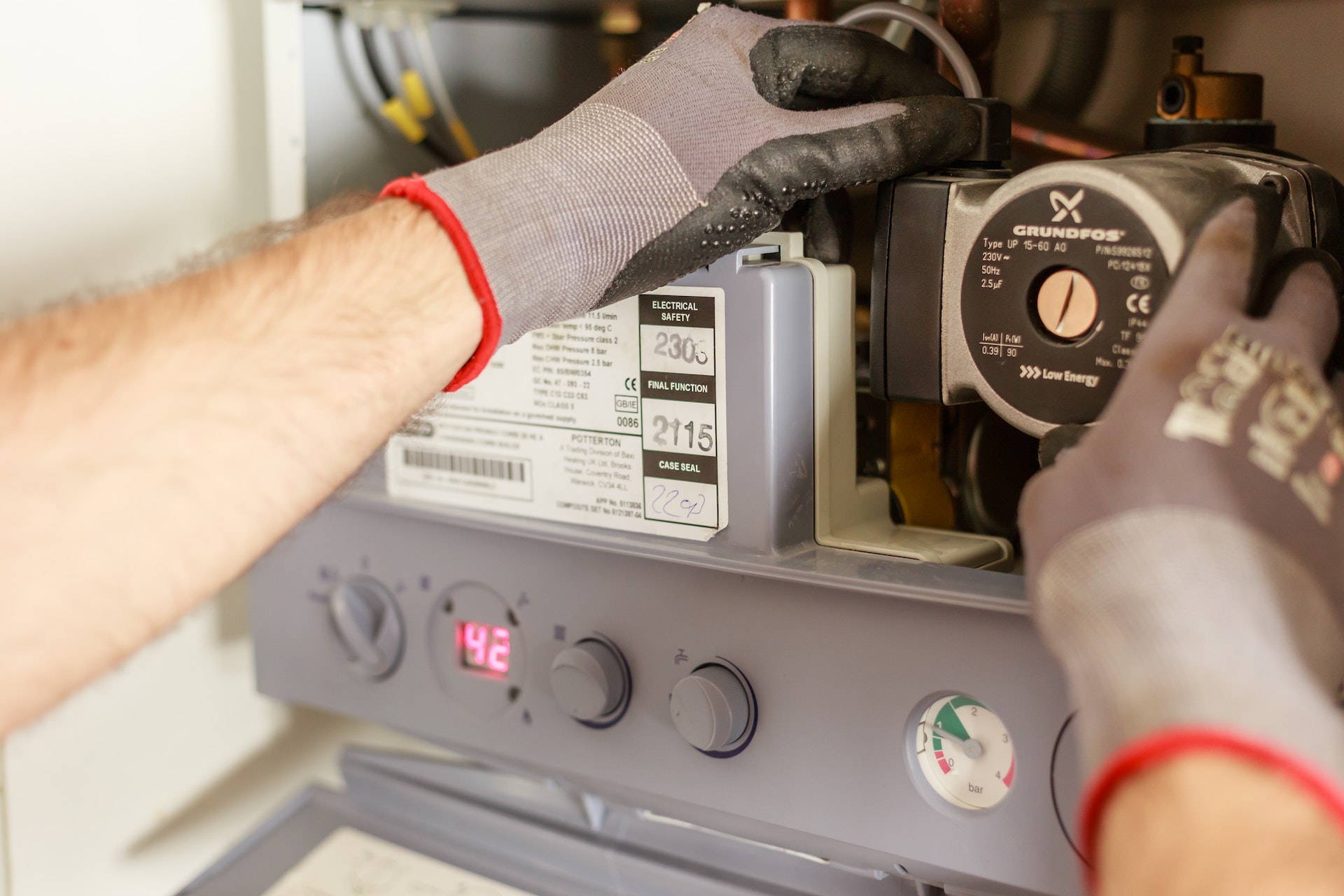
When it comes to warranty, there are hot water tank companies that guarantee a full value. It is amazing how companies will make it a little nicer to extend longer because you are paying for it.
Some hot water tanks last a long time. You want to be proactive about hot water tank maintenance, especially if they are located on higher floors.
A damaged hot water tank can flood an entire unit with 40 to 50 gallons of water. If located somewhere upstairs, water can flood the rest of the floors beneath it. The damage might be more manageable if the water tank is in the basement.
The Landlord Tutor Promise
To know more about purchasing hot water tanks, saving money, and understanding warranties, join the Landlord Tutor community and sign up here.
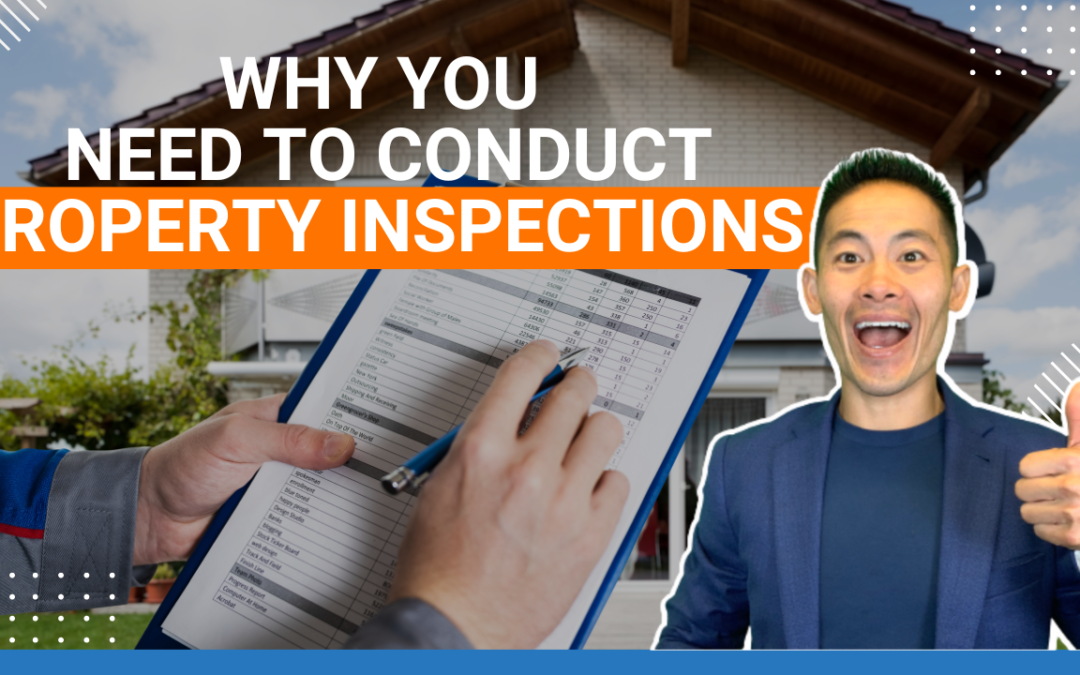
by J. Lau | Aug 8, 2022 | Insurance/Protecting your asset, Property Maintenance
A thorough inspection is one of the most important aspects of owning an investment property. Today, I explain why you need to conduct these inspections from my perspective as a licensed home inspector.
Why You Need Property Inspections
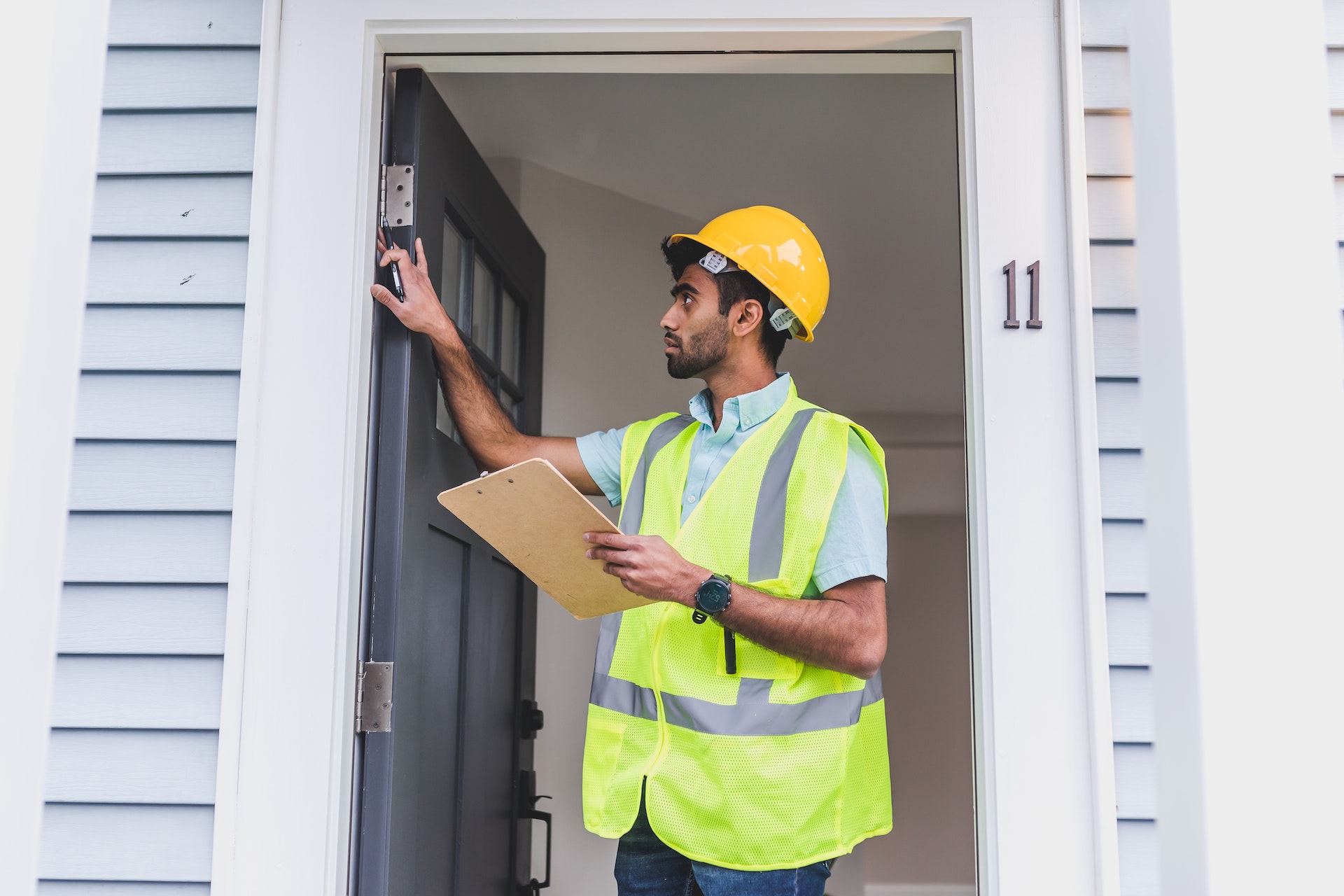
Property inspection is when you or a licensed home inspector walks through the entire property and thoroughly checks it for any issues or damages.
It is one of the most basic management tasks; whether it’s a minor check-up or a thorough inspection, property inspections help you ensure a property is functioning to its maximum potential.
Here are three reasons why you shouldn’t skip inspections on your property:
1. Avoid liabilities
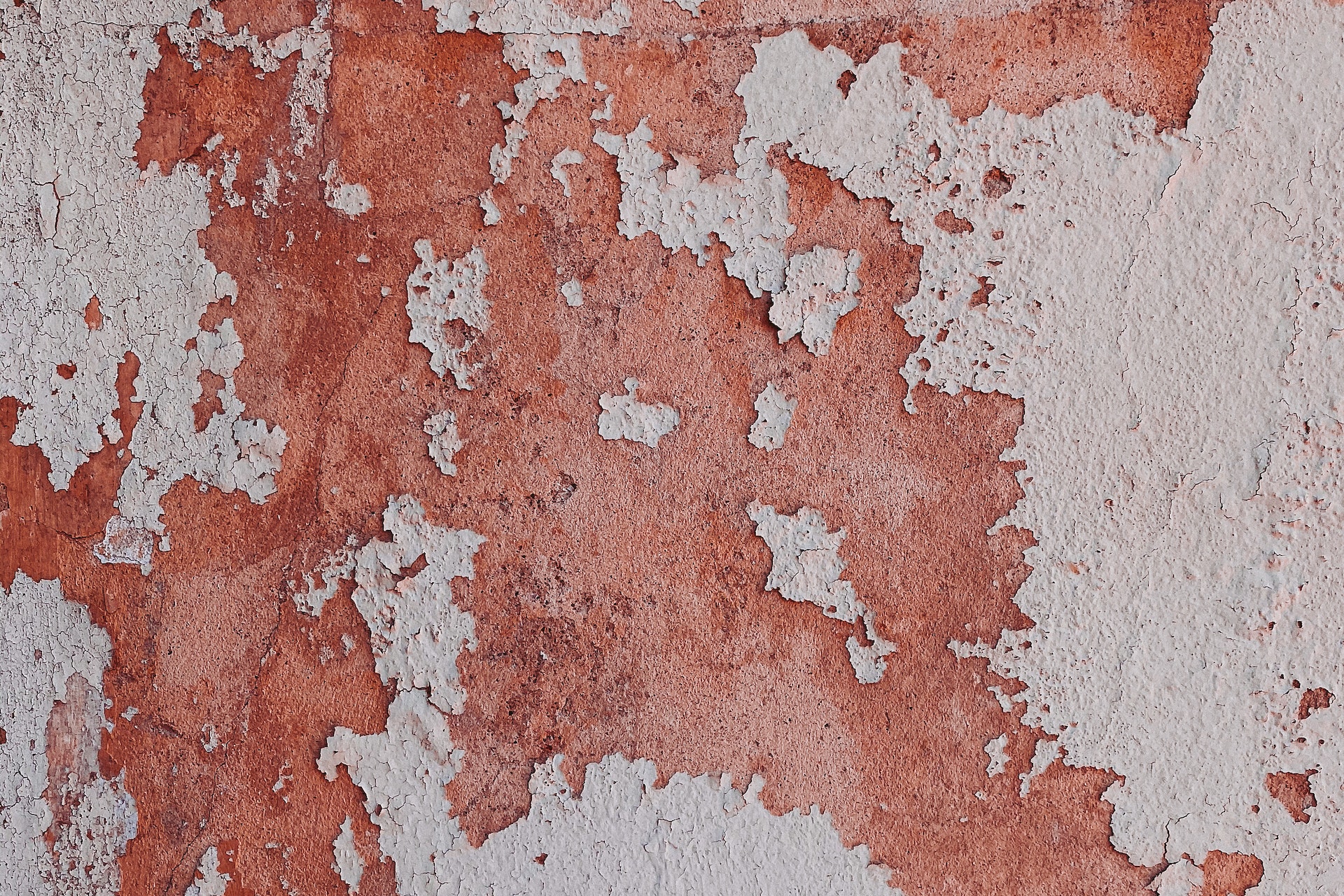
Loose steps, flaking paint, and busted lighting are some issues that could get you into trouble.
Anything that can cause someone to get hurt would be your responsibility. These are all liabilities that you can get sued for and would go under your insurance, and you wouldn’t want any of that.
2. See how tenants treat the property
We conduct inspections twice a year using the software called zInspector. It allows you to document your property’s condition with photos, videos, and detailed annotations that are securely stamped with the date and time and geo-located to the property address for easy reference.
Your property’s condition is important, whether you’re putting it up for sale or when it’s being used as a rental. You should conduct property inspections before you offer a renewal on your lease or while the current tenant is still staying in the property.
We may offer a lease renewal if they keep the property in good condition. If they’re not, we might not offer that renewal, but at least we can talk to them about remediating the damages and treating the property better.
3. Monitor and record damages

Probably the most important reason to conduct property inspections regularly is to have documentation. Even if tenants claim not to be responsible for the current damages on the property, you can show them proof.
You can use those inspection reports to compare the state of the property before and after they occupied the unit. With documentation, you can charge them for repair costs by deducting the amount from their security deposit.
The Landlord Tutor Promise
My experience and expertise as a property manager and home inspector allow me to give insights into how property inspections can help protect you and your investment property.
Join the Landlord Tutor community and sign up here to learn more about property inspections and keeping your investment properties profitable.
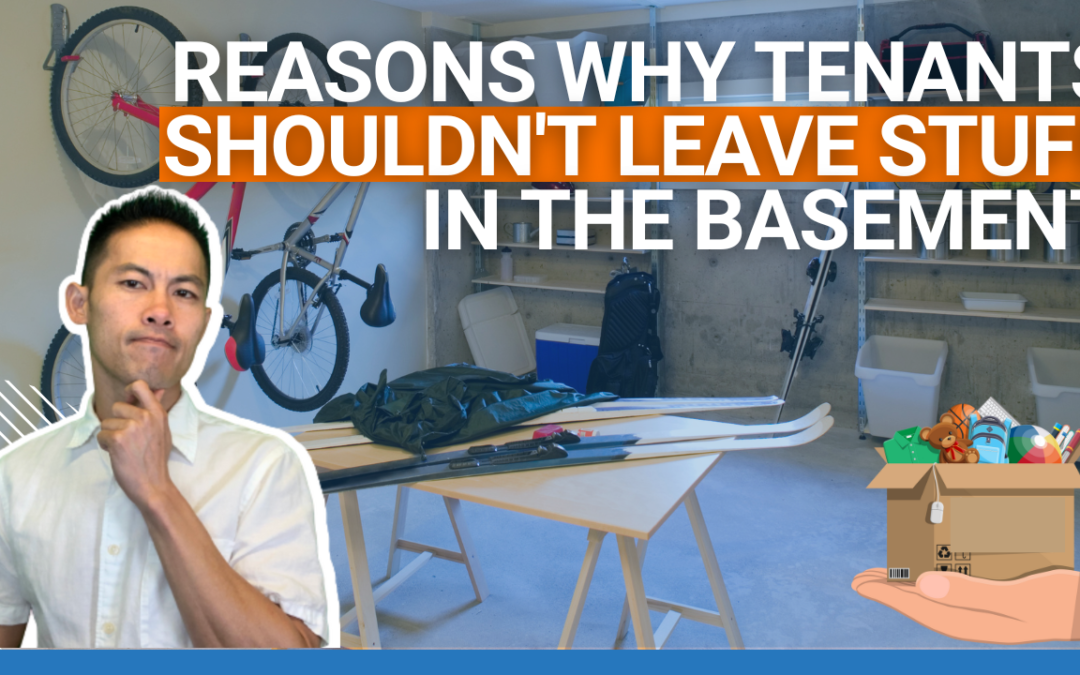
by J. Lau | Aug 4, 2022 | Being A Landlord, Tenant Issues
Common areas, most especially basements, should be free from any stuff owned by your tenants. In this article, we give you reasons why not allowing tenants to leave their belongings in the basement prevents you from dealing with complaints and liabilities in the future.
Managing Common Areas in Multi-family Properties
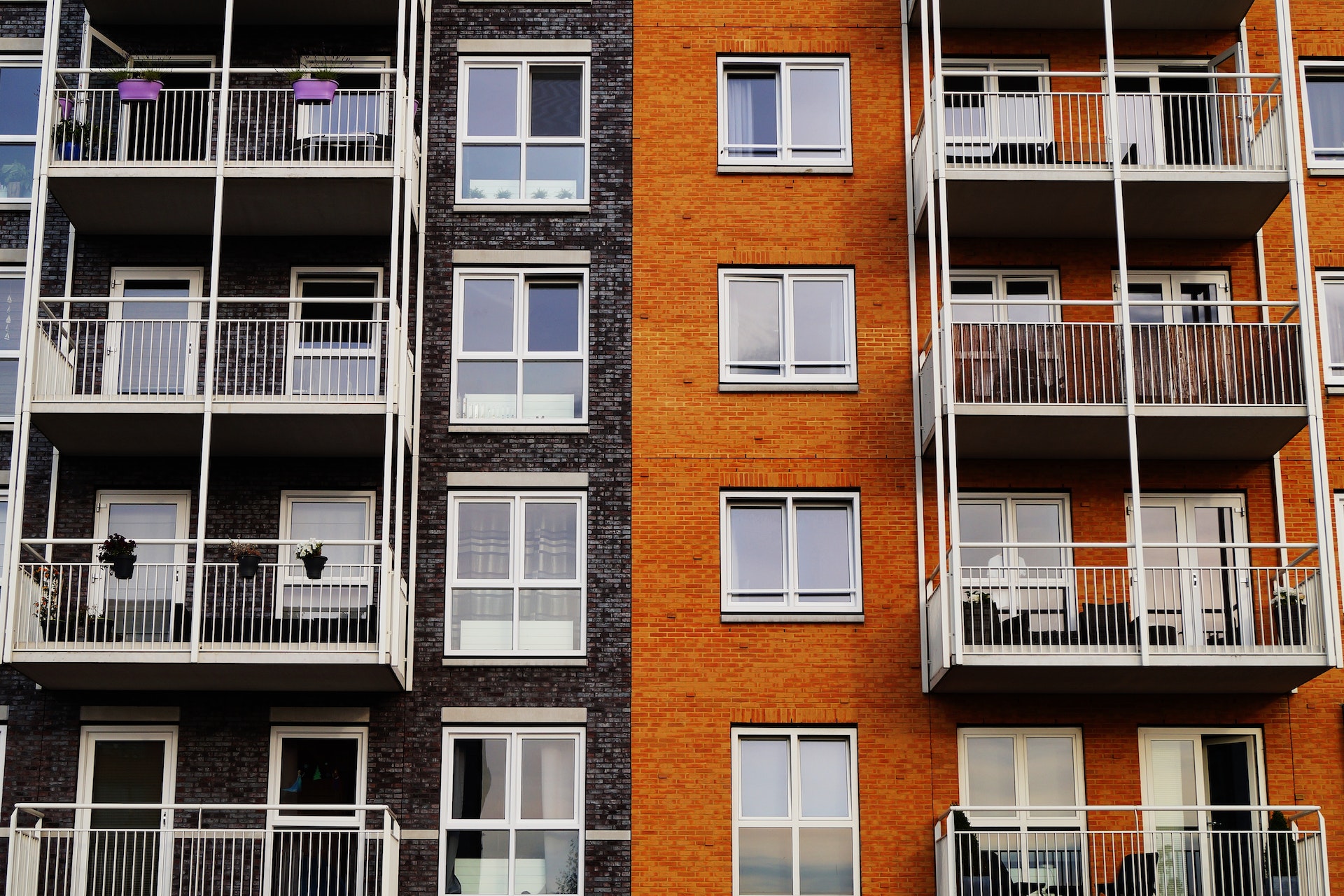
Across greater Boston, I manage hundreds of multi-family properties. And multi-family properties have lots of common areas that must always be clean, organized, and safe.
Common areas are areas that anyone renting in your multi-family property can use. Depending on your property type, common areas can include the pool, stairwells, garden, mail area, and basements.
But landlords always ask, “Should we allow tenants to leave personal belongings in the basements?”
The answer is NO.
No Personal Belongings in Basements

It is important for tenants to know their responsibilities regarding the common areas of the property.
But here are the reasons why we do not allow tenants to leave or store their belongings in common areas, particularly the basement.
1. It opens you up to liabilities and complaints.
Basements are prone to mess, so it is necessary to clean up later on. Year after year, we see tenants leaving things in these basements, which can result in their stuff:
- getting flooded
- getting stolen
- causing fire hazards when placed close to boilers or hot water tanks
What’s worse is we get blamed for these mishaps. But these liabilities and complaints can all be avoided with a simple “No Personal Belongings in the Basement” section in the lease.
2. It takes up storage space that the property owner could be using or paying for.
While it is understandable that tenants may need a place to store some of their stuff, it can become a problem sometimes.
You see, if the tenant leaves any possessions in the basement, it means that the property owner doesn’t have access to that storage area anymore. During this time, the property owner may also be unable to collect income from renting out that storage space.
3. If you don’t get rid of it, it will keep building up.
Tenants can be notorious for bringing possessions with them to their property. When you think about it, the basement is one of the most convenient places to leave things.
From a tenant’s perspective, if you don’t want to bother taking your things upstairs or to your unit, you can put them in the basement where they will remain out of the way until you need them again.
But this convenience of having stuff out of the way can make more things pile up easily.
How to Keep Tenants’ Stuff Off the Basement
With every single one of our leases, we put a section that states no personal belongings are allowed in the basement. However, we still want to provide some sort of storage space as an added value for our tenants. Plus, it presents an opportunity for your to make more money as a landlord.
In any multI-family with a basement, we will typically walk down into the basement to see if this is an area where we can build storage bins. Then, we rent out these storage bins to the tenants.
That way, it’s a win-win: the tenants get a storage space for their stuff, and the landlord makes additional income for while everything is kept clean and organized.
The Landlord Tutor Promise
To know more about being proactive and forward-thinking to solve problems such as tenants who leave stuff in the basement, join the Landlord Tutor community and sign up here.

by J. Lau | Aug 1, 2022 | Property Management, Safety
What’s a surefire way to make a property for lease or sale stand out? Home technologies. Here are three of our favorites that will impress your tenants and improve their overall experience in your property.
3 Home Technologies to Impress Your Tenants
#1 Keypad Locks
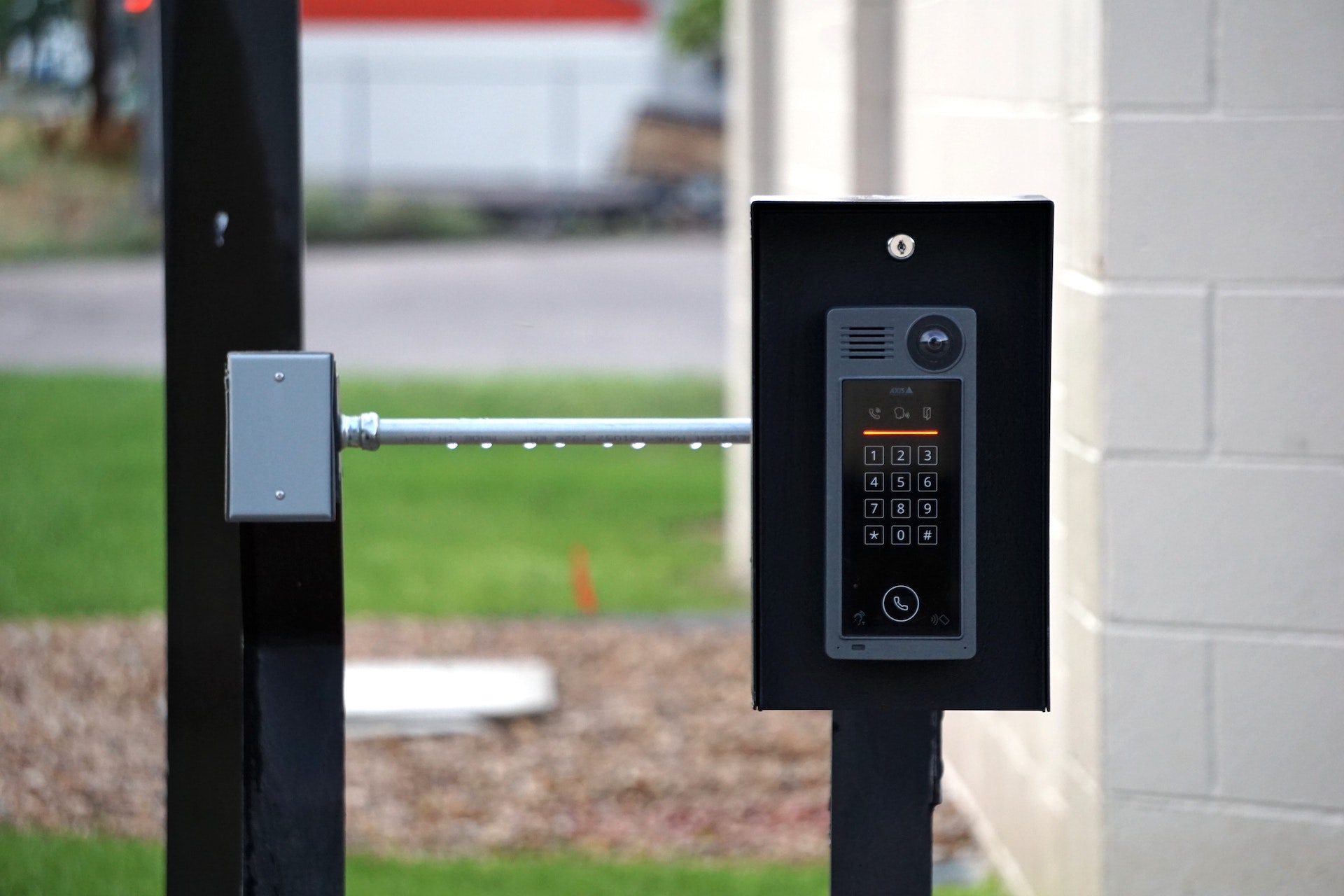
Tenants never have to worry about bad keys, losing them, or even locking themselves out ever again!
Usually, you can create temporary codes for dog sitters or walkers and allow them to only have it for a certain time frame. With keypad locks, you can change the code anytime for increased security.
#2 Nest Thermostats

As a smart device, a nest thermostat keeps track of when tenants are home and what their preferred temperature is.
It is much better than the older thermostats that just stay at one temperature until they are turned on or off. With nest thermostats, tenants also save money.
Nest thermostats can also be programmed using a phone app, so tenants can turn the heat on or off even if they are not at the property.
#3 Doorbell Video Cameras
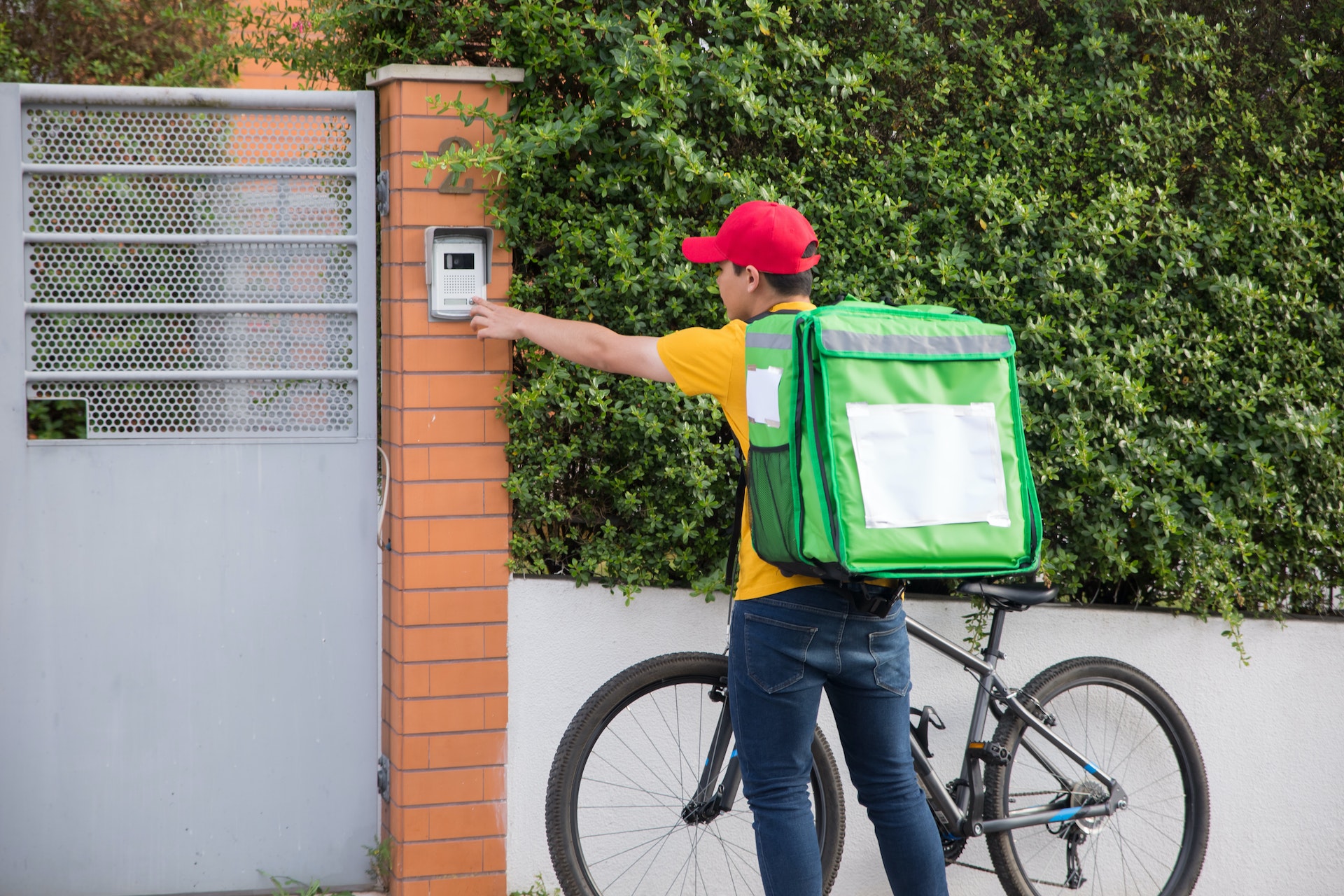
Imagine a tenant living on the second or third floor, and someone rings the bell. They would have to run all the way down to figure out who was at the door.
Tenants love to feel secure, and a doorbell video camera allows them to see who is at the door, even on their phone. This gives them that additional layer of security and convenience in your property.
The Landlord Tutor Promise
As a property manager and owner, I am always on the lookout for the latest industry trends to keep tenants happy. To know more about home technologies and other ways to impress your tenants, join the Landlord Tutor community and sign up here.










